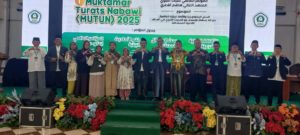 SUMATRAN TIGER
SUMATRAN TIGER
Large carnivores that cause loss of human life or livelihoods are frequently killed in retribution. However, religious or spiritual beliefs may encourage local tolerance of such conflicts. To date, conservation biologists and social scientists have not tested this aspect of human-wildlife conflict within a quantitative and interdisciplinary framework.
A long-term case study of Sumatran tigers living close to Islamic farming communities allows us to explore both ecological and social determinants of such conflictsi. Taken together, these data will provide timely insights into the drivers of tiger conflict, and allow us to better understand how to strengthen tolerance towards dangerous wildlife.
Dr. Fachruddin Mangunjaya, Center for Islamic Studies is member team of this research incollaboration with DICE UNIVERSITY of KENT and Fauna and Flora Indonesia Program tiger experts.
UPDATE
Scientific Publications:
Popular publications:



